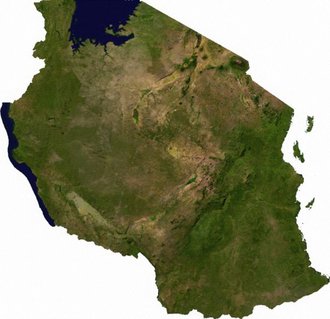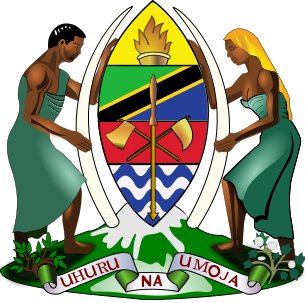It’s 2061, 100 years on since Tanzania became independent, some of us are dead or in our 70s, a history student at Thobolola (for pioneer) University is interested and amazed by the economic developement that her country has reached. Determined to find out the reason behind such development she immenses herself to research on factors that might have contributed to such a growth.
She goes back to the year 2010 when the country seemed hopeless but, a few years later, it had realized her purpose and hence attained such growth: per capita GDP has grown from $1,416 to $28,193, economy is steadily growing at a double digit rate of 14.02%, there is food security, everyone has access to electricity, and the economy is both agriculture and technology driven.

By chance she finds an article online about the ground work that was set by her fathers which could suggest some of the reasons for such growth. Tanzania of 2040 according to The Tanzania Development Vision 2040 developed by many agents of development in the country would be characterized by, she reads:
Ideally, a nation’s development should be people-centred, based on sustainable and shared growth and be free from abject poverty. For Tanzania, this development means that the creation of wealth and its distribution in society must be equitable and free from inequalities and all forms of social and political relations which inhibit empowerment and effective democratic and popular participation of social groups (men and women, boys and girls, the young and old and the able-bodied and disabled persons) in society.
In particular, by the year 2040, racial and gender imbalances will have been redressed such that economic activities will not be identifiable by gender or race. All social relations and processes which manifest and breed inequality, in all aspects of the society (i.e., law, politics, employment, education, culture), will have been reformed.
A nation should enjoy peace, political stability, national unity and social cohesion in an environment of democracy and political and social tolerance. Although Tanzania has enjoyed national unity, peace and stability for a long time, these attributes must continue to be cultivated, nurtured and sustained as important pillars for the realization of the Vision.
Tanzania cherishes good governance and the rule of law in the process of creating wealth and sharing benefits in society and seeks to ensure that its people are empowered with the capacity to make their leaders and public servants accountable. By 2040, good governance should have permeated the national socio-economic structure thereby ensuring a culture of accountability, rewarding good performance and effectively curbing corruption and other vices in society.
- Attain self reliance driven by the psychological liberation of the mindset and the people’s sense of confidence in order to enable the effective determination and ownership of the development agenda with the primary objective of satisfying the basic needs of all the people – men, women and children.
- Be a nation whose people have a positive mindset and a culture which cherishes human development through hard work, professionalism, entrepreneurship, creativity, innovativeness and ingenuity and who have confidence in and high respect for all people irrespective of gender. The people must cultivate a community spirit; one which, however, is appropriately balanced with respect for individual initiative.
- Be a nation with high quality of education at all levels; a nation which produces the quantity and quality of educated people sufficiently equipped with the requisite knowledge to solve the society’s problems, meet the challenges of development and attain competitiveness at regional and global levels.
Means through which this vision was achieved:
- Food self-sufficiency and food security.
- Universal primary education, the eradication of illiteracy and the attainment of a level of tertiary education and training that is commensurate with a critical mass of high quality human resources required to effectively respond and master the development challenges at all levels.
- Gender equality and the empowerment of women in all socio-economic and political relations and cultures.
- Access to quality primary health care for all.
- Access to quality reproductive health services for all individuals of appropriate ages.
- Reduction in infant and maternal mortality rates by three-quarters of current levels.
- Universal access to safe water.
- Life expectancy comparable to the level attained by typical middle income countries.
- Absence of abject poverty.
Good Governance and the Rule of Law
- Desirable moral and cultural uprightness.
- Strong adherence to and respect for the rule of law.
- Absence of corruption and other vices.
- A learning society which is confident, learns from its own development experience and that of others and owns and determines its own development agenda.
A Strong and Competitive Economy
- A diversified and semi-industrialized economy with a substantial industrial sector comparable to typical middle-income countries.
- Macroeconomic stability manifested by a low inflation economy and basic macroeconomic balances.
- A growth rate of 8% per annum or more.
- An adequate level of physical infrastructure needed to cope with the requirements of the Vision in all sectors.
- An active and competitive player in the regional and world markets, with the capacity to articulate and promote national interests and to adjust quickly to regional and global market shifts.
Still digging, she outlines a few remarks that:
- A nation can reach economic development if it finds bold approaches to solving its challenges.
- Identifying its purpose and where it wishes to get in the future is central to development of a nation.
- Health security is achieved through equipment of health service providers by providing them with both a better training and better facilities.
- Building a well-informed and independent society is the right way to go.



Why not, its achievable and possible, shes not breaking any law for wishing the best for her country, I dream a lot, dreams can become a reality.
We hope our country will strive towards those goals.
Excellent article
BK, I very much respect your courage and vision, and I hope that others who read this are encouraged by the prospect of Tanzanian’s well-being.
But I apologize, because I must resist the temptation to get over-excited. Tanzania has a number of “development visions”, such as the one you link to at the end of your post, MKUKUTA, and now more recently MKUKUTA II, plus a few more. All these plans are born out of “strategic” interests of institutions – both indigenous to Tanzania and foreign – and political actors.
The trouble with these plans, in my opinion, is that the ordinary Tanzanian citizen does not know about them in their entirety. The plans are not easy to read for the daily-working individual who wants to see tangible implications on their employment, their health security, their childrens’ education, and their neighborhood’s land. Instead, the ordinary Tanzanian finds out about these plans in small moves by their governing constituencies that attempt to tackle the grand master plan without divulging why their small moves are strategic in the bigger picture.
So what happens at the end of the day? The same setbacks that are outlined in the link you provide under the title “2.2 Impediments“. Slightly-altered version below:
– Donor-Dependence Syndrome
– Dependent and Defeatist Development Mindset
– Weak Economy
– Low Capacity for Economic Management
– Failure in Governance and Organization for Development
– Ineffective Implementation syndrome
To be honest I don’t think we have run away from these impediments. Tanzania still engages with these problems every day from the top of the government to the bottom of the economy.
Again, BK, I sincerely appreciate the efforts you put forth in trying to create a stimulating environment for us youth to act upon. It tells me that us young folk (1) have not given up on our country, and (2) believe in being part of taking our country to the next level what whatever it decides to define its next level as.
However, we need to approach these plans with exactly the way you envision it; with a sense of responsibility towards those who will be living and running Tanzania in the future. That requires us – every Tanzanian – to know what is being preached to us, and to act not only according to it, but on it. What people should be asking themselves is: “Are these plans actually what we want, and if so, how are we part of them? If these plans are not actually we want, where did these plans originate, and why didn’t the source do their homework before pouring money and man-hours into it?”
So my rant comes to a close with one question: When are these plans going to be transparent (honest), legible (easy to read), and actionable (clear directions) for the ordinary Tanzanian in a way we feel a sense of ownership over our country’s development vision?
BK, Mambo mazuri haya. Nice stuff, I like in as much as I am a Kenyan, because I know if my neighbors succeed so will me. Keep it up.
Your blog is really cool to me and your subject matter is very relevant. I was browsing around and came across something you might find interesting. I was guilty of 3 of them with my sites. “99% of blog owners are committing these 5 HUGE errors”. http://is.gd/jhKkC5 You will be suprised how fast they are to fix.